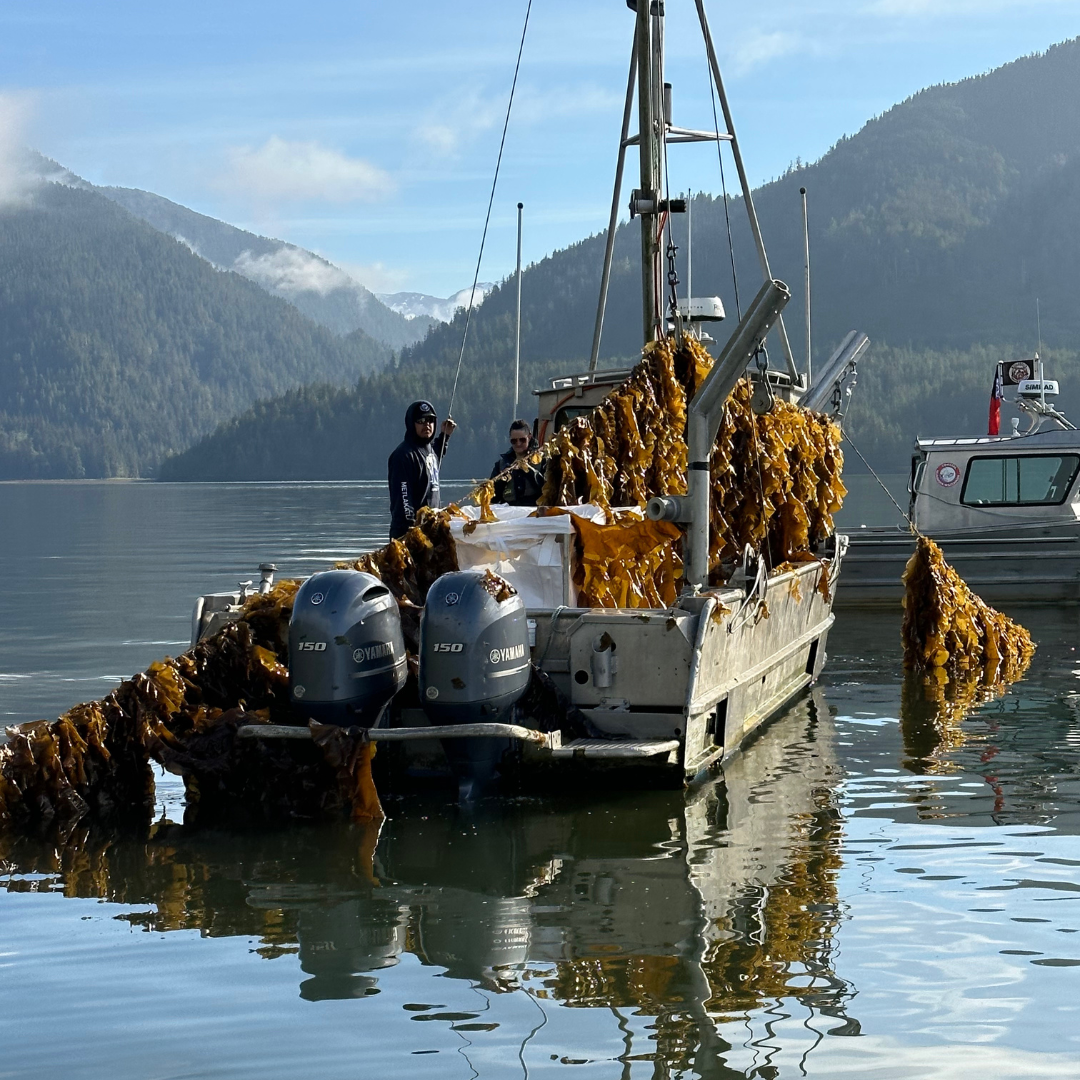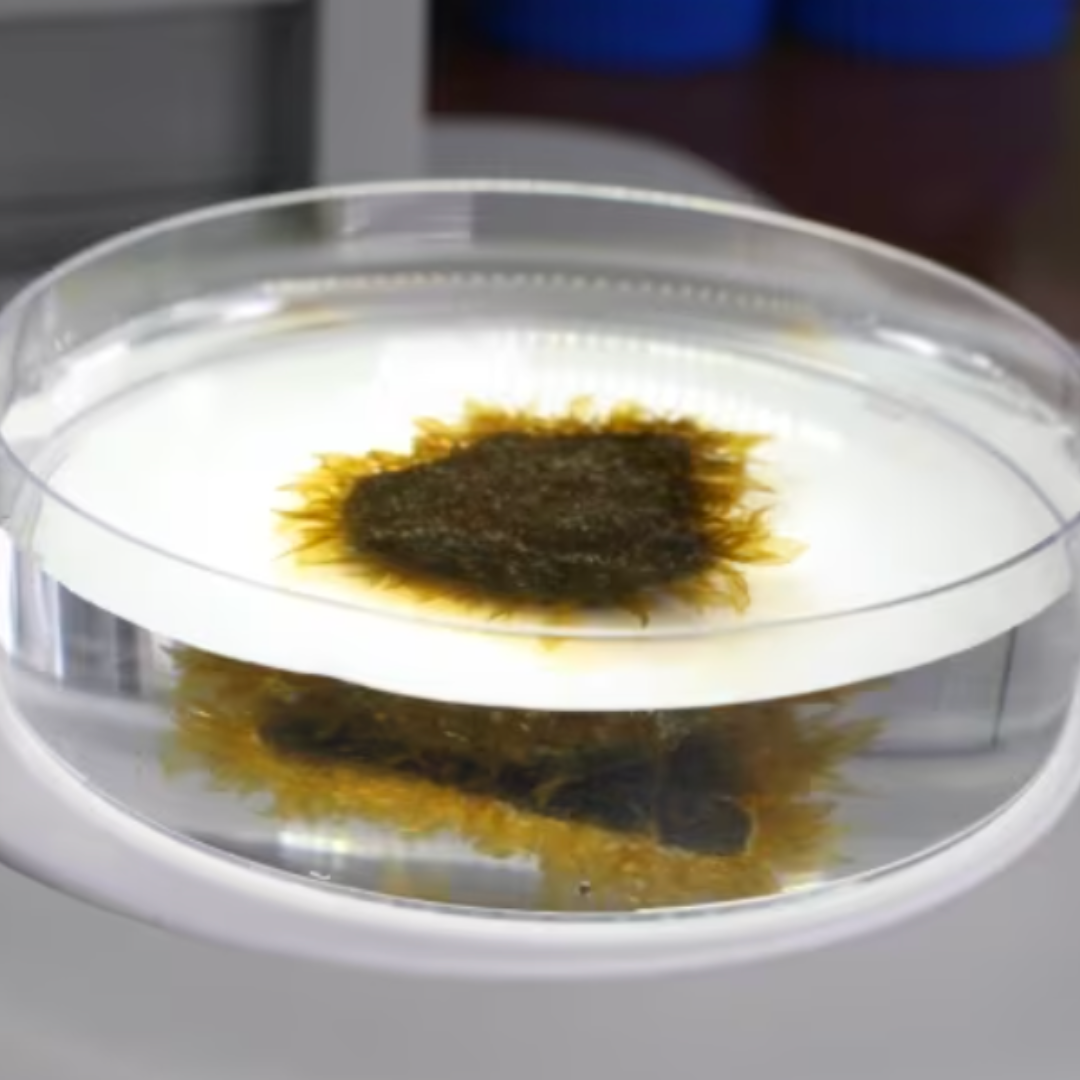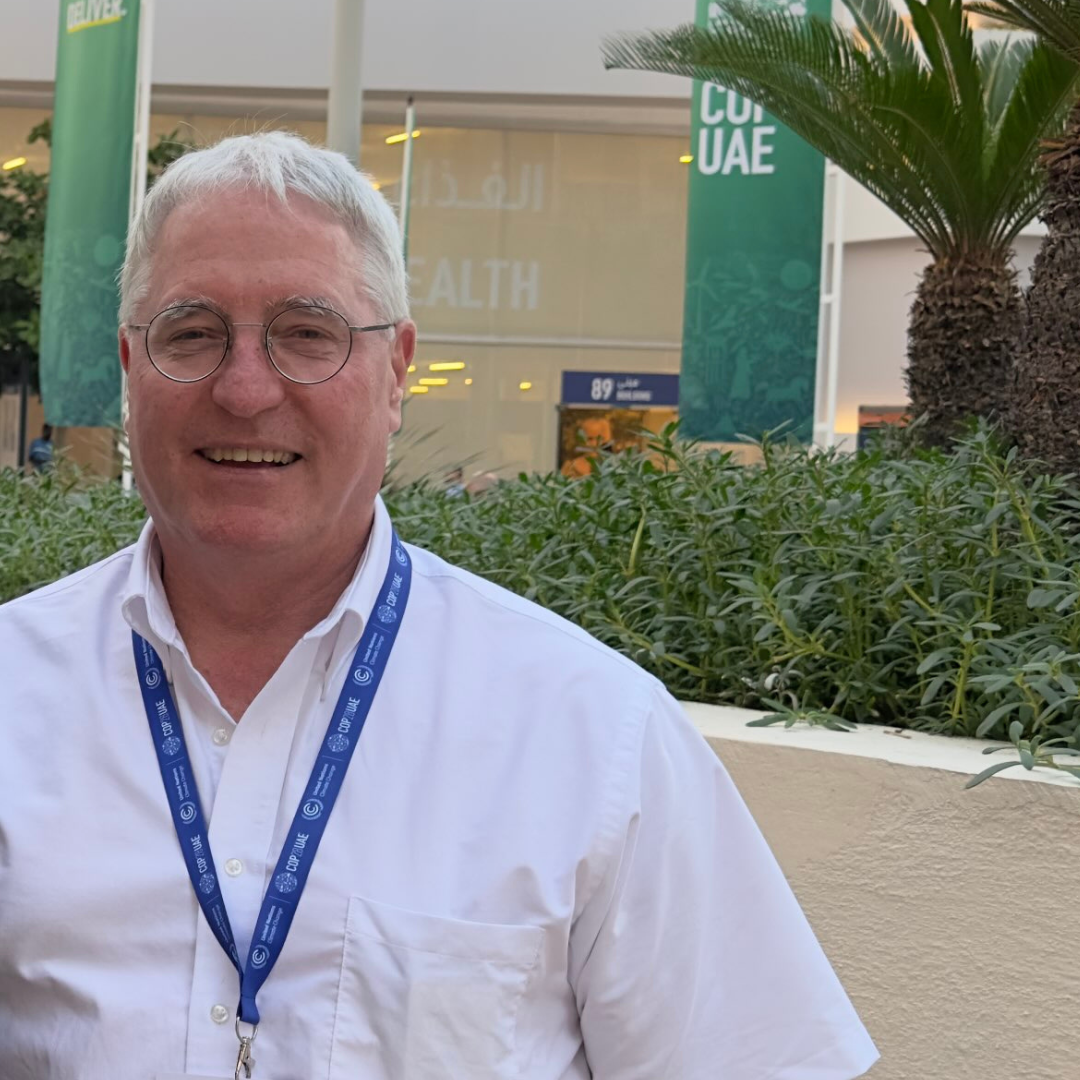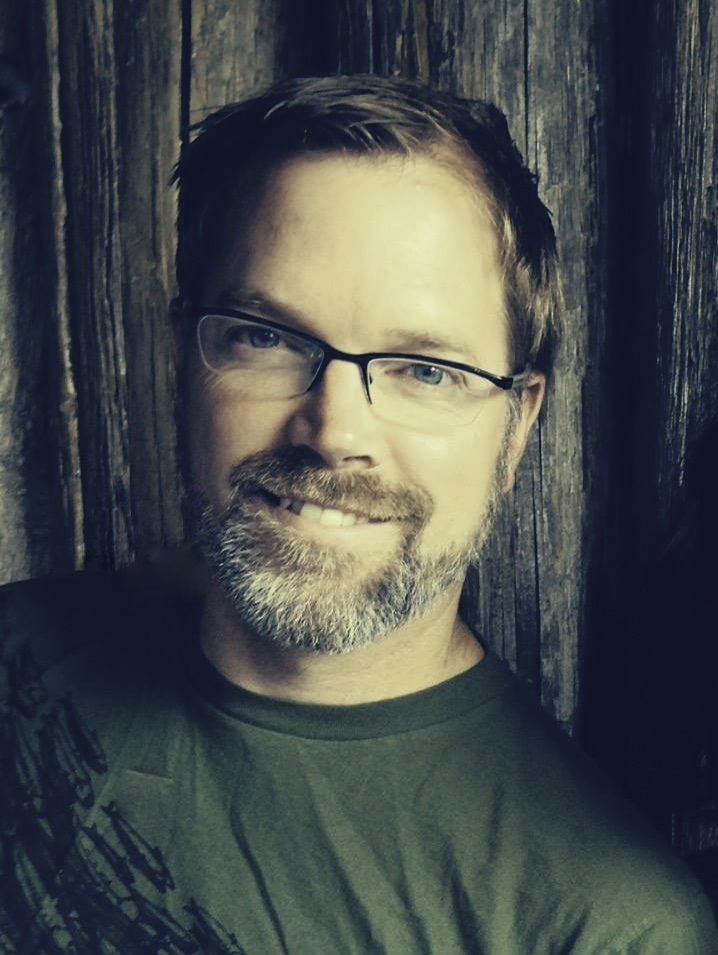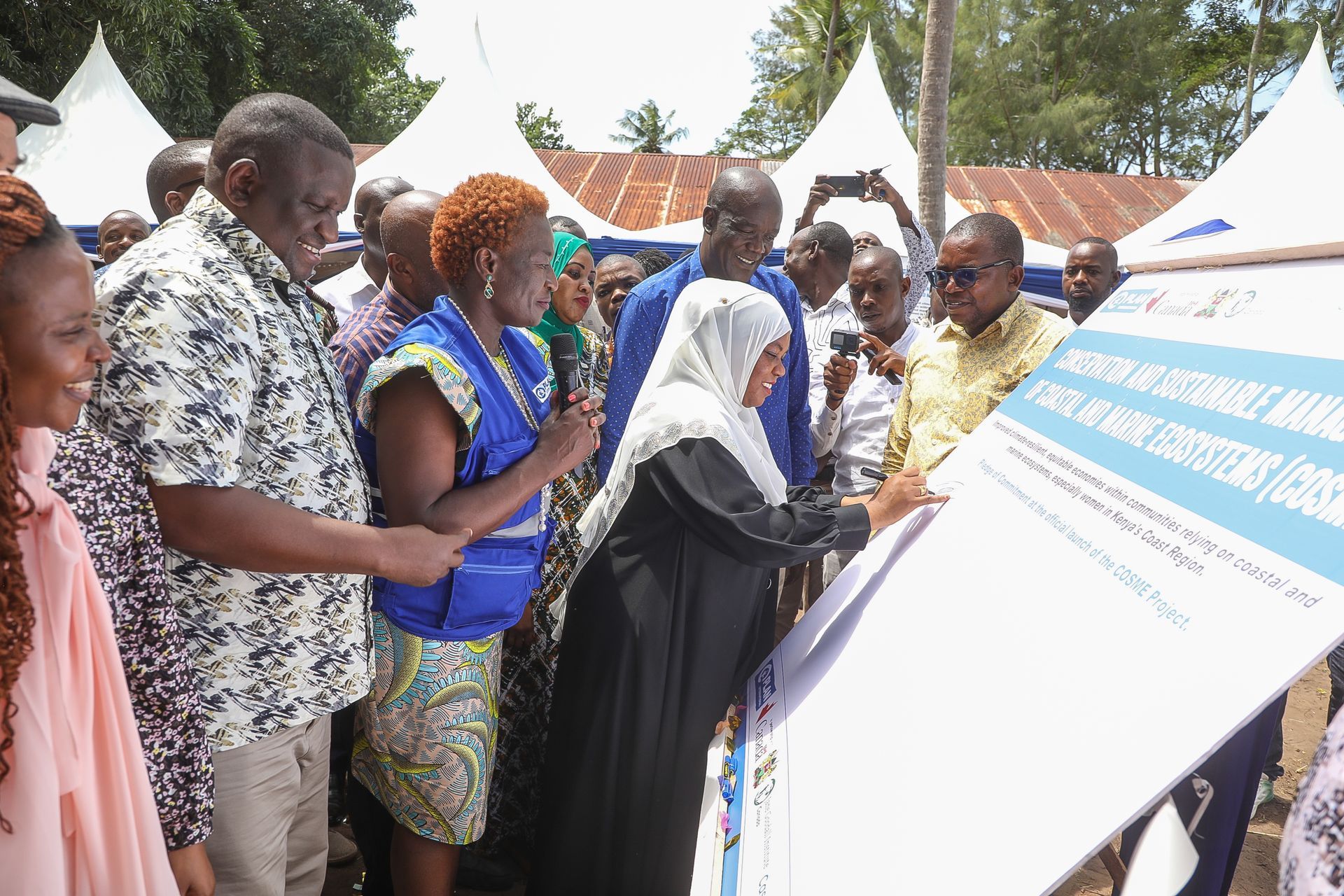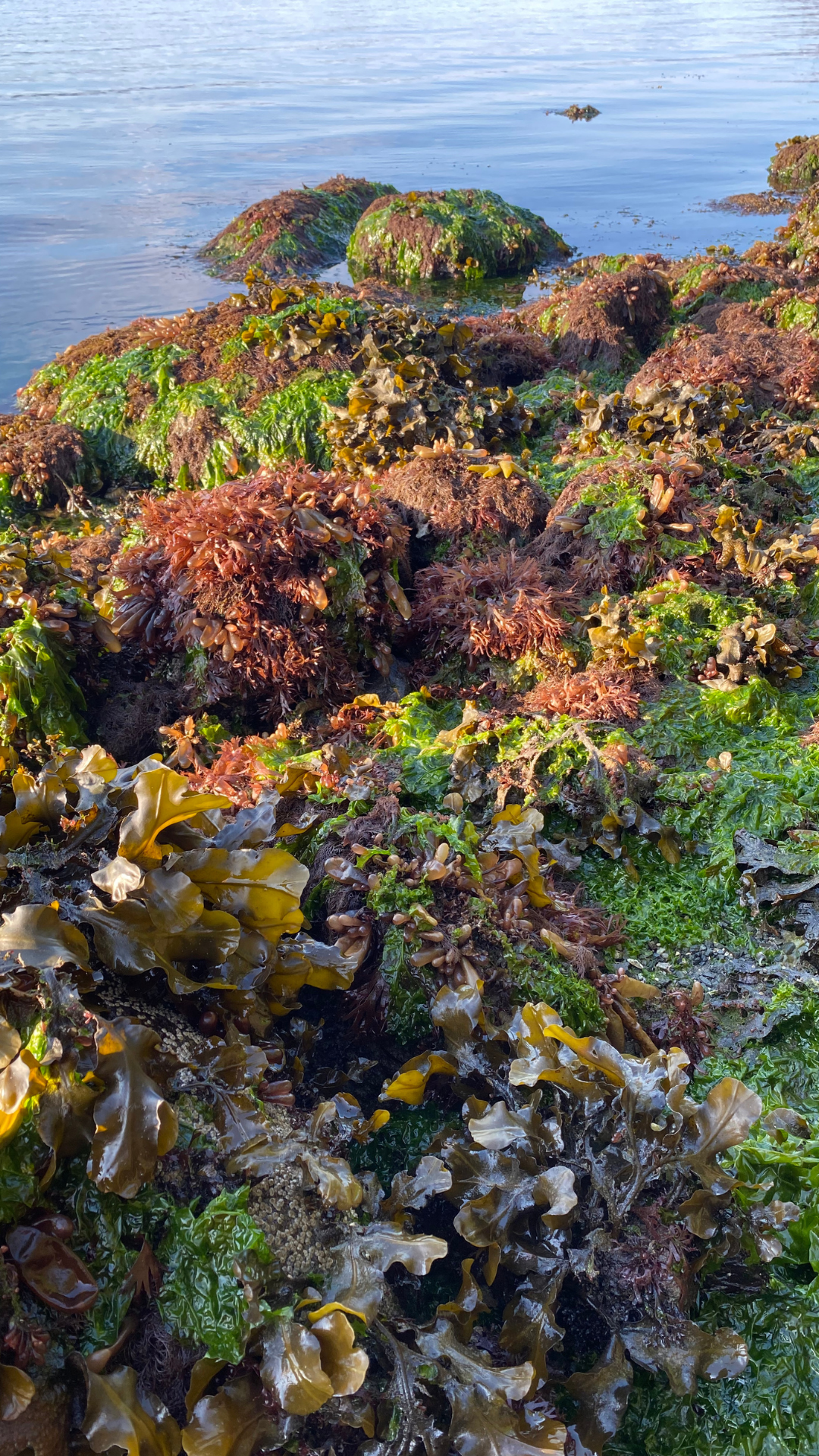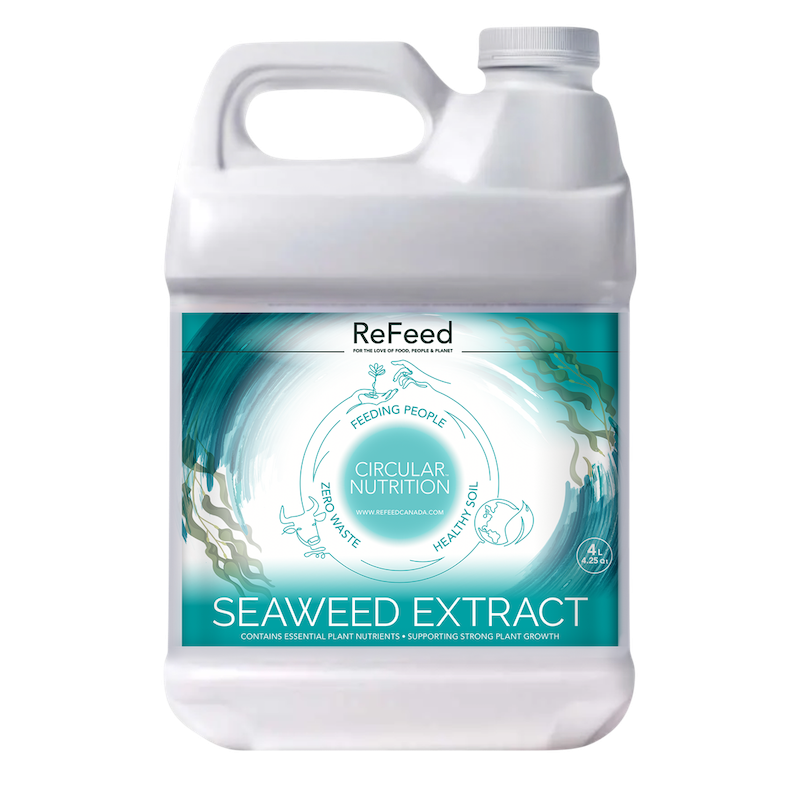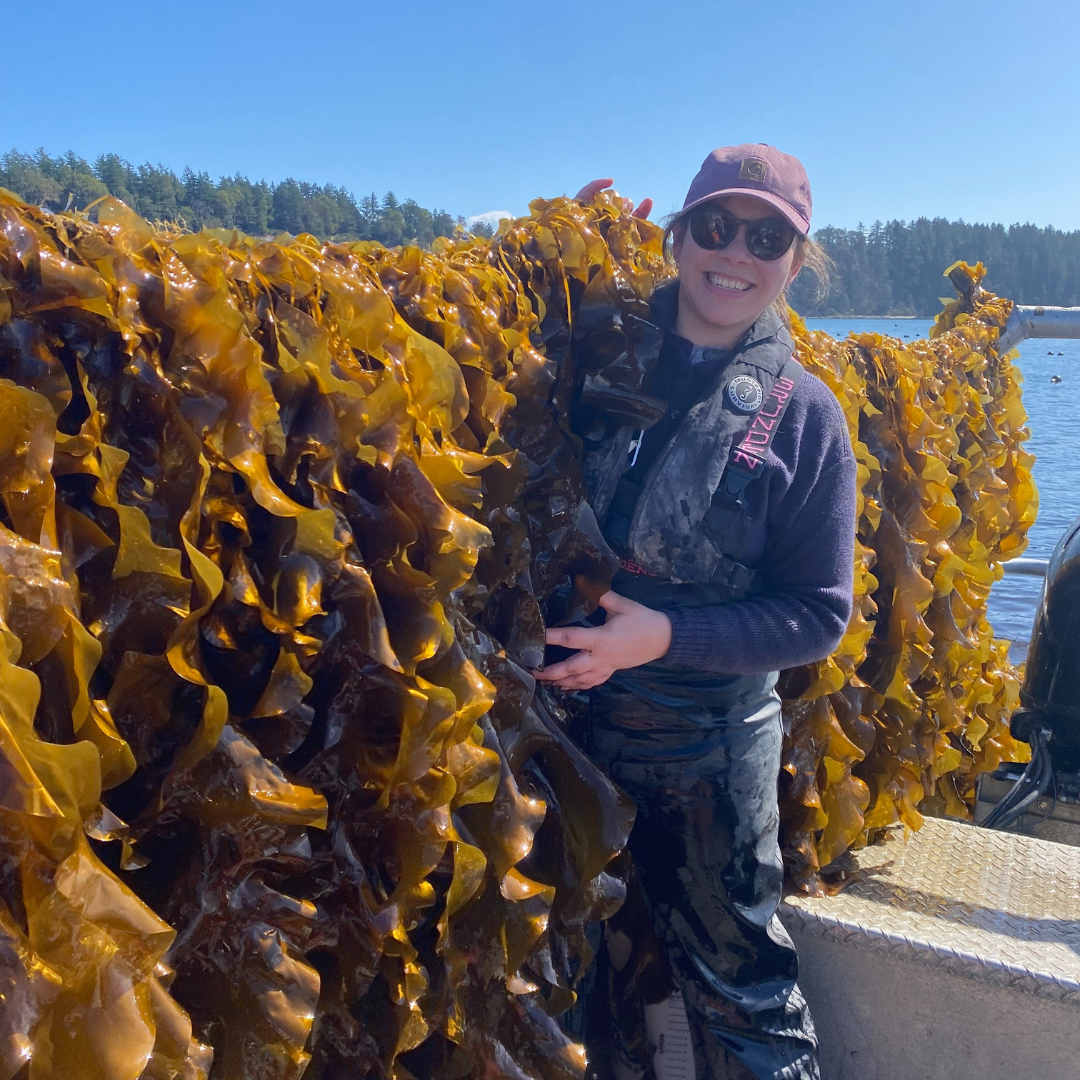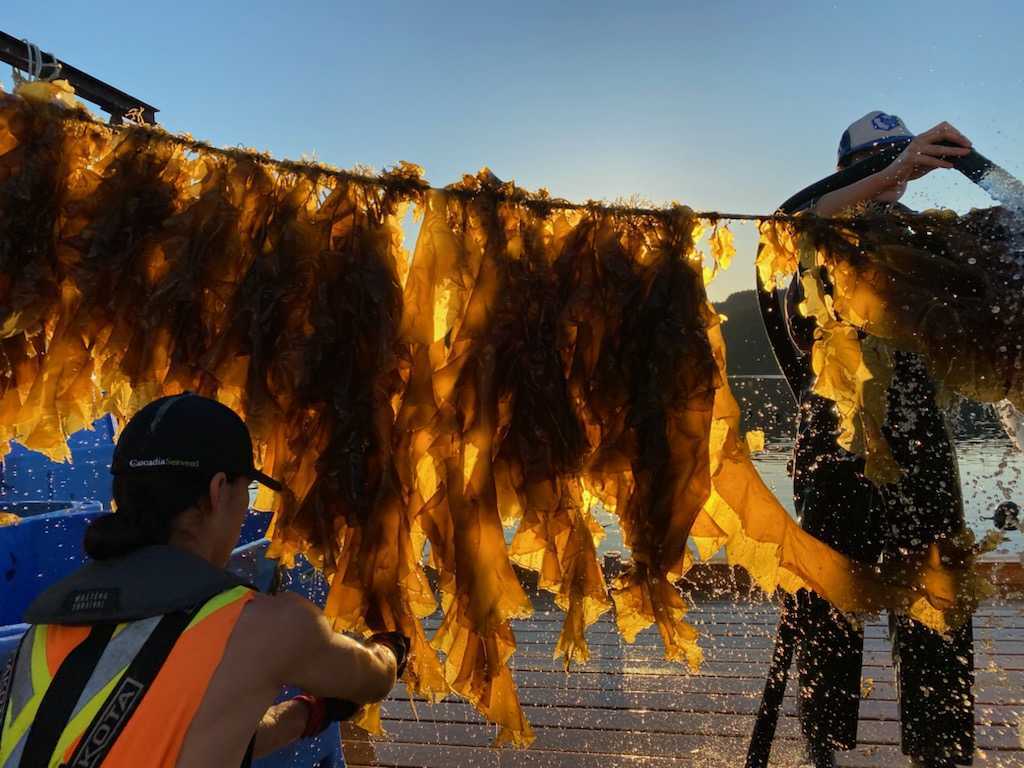At Cascadia Seaweed, we cultivate local species of seaweed and manufacture products for crop and cattle farmers.
Cascadia Seaweed, the leading ocean cultivator of brown seaweeds in Canada, is pleased to announce the successful completion of its recent harvest season which exceeded biomass predictions.
"Harvest is like prom season for any seaweed farmer," says Matt Obee, VP of Operations at Cascadia Seaweed, highlighting the excitement and satisfaction among the team during the harvest period.
This season proved bountiful, with over 300 tonnes of kelp cultivated from eight farms around Vancouver Island and two locations in Northern British Columbia. In specific locations, average yields reached upwards of 6kg per meter — double predictions — reflecting successful improvement efforts and favourable environmental conditions. Most of this year's harvest will be processed into liquid seaweed extract, a natural liquid plant food for home and garden plants, at a facility in Port Alberni.
In addition to the expansion into Northern British Columbia, two farms garnered notable highlights this season.
A larger trial of a second harvest was conducted at the Cormorant site, where the kelp was given a "haircut" during the first harvest and left to grow back. The second harvest yielded comparable results to the first on a kg/m basis. Although further improvements in harvesting techniques are required, the team remains optimistic about the potential to include a second harvest at the Cormorant and James Island sites in the future.
After nearly three years of coordination, permitting, assessments, and design, installation and seeding of the Diplock Island site was successfully completed in January this year and is now a successful demonstration of two neighbouring Indigenous communities forming mutually beneficial relationships with a commercial entity.
“At Cascadia Seaweed, we understand that navigating the tenure and license application process can be a significant challenge on the timeline of a for-profit company, however, we persist because we firmly believe we can provide economic and environmental value,” expresses Mike Williamson, CEO of Cascadia Seaweed.
The Diplock site has over 20km of production line and, although planted late in the season, produced over 75 tonnes of kelp — the most productive of all sites this season.
Looking ahead, Cascadia Seaweed is enthusiastic about its capacity to cultivate at scale. The team is currently developing a plan for the next season, with a focus on expanding and refining Macrocystis cultivation processes in Northern British Columbia to meet the growing demand for seaweed-derived biostimulants.
This successful harvest season underscores Cascadia Seaweed's commitment to regenerative practices, environmental stewardship, and collaborative partnerships with coastal First Nations. The company remains dedicated to pioneering solutions that contribute positively to climate change mitigation and food security.
This video was funded by the Province of British Columbia through the project Analysis of Capacity of West Coast Vancouver Island Coastal Communities to Deliver Large-Scale Ocean Farming of Seaweed implemented by Nuu-chah-nulth Seafood LP in partnership with Cascadia Seaweed Corp.
Footage provided by Peter Mieras, Andrew Crandell and Cascadia Seaweed.
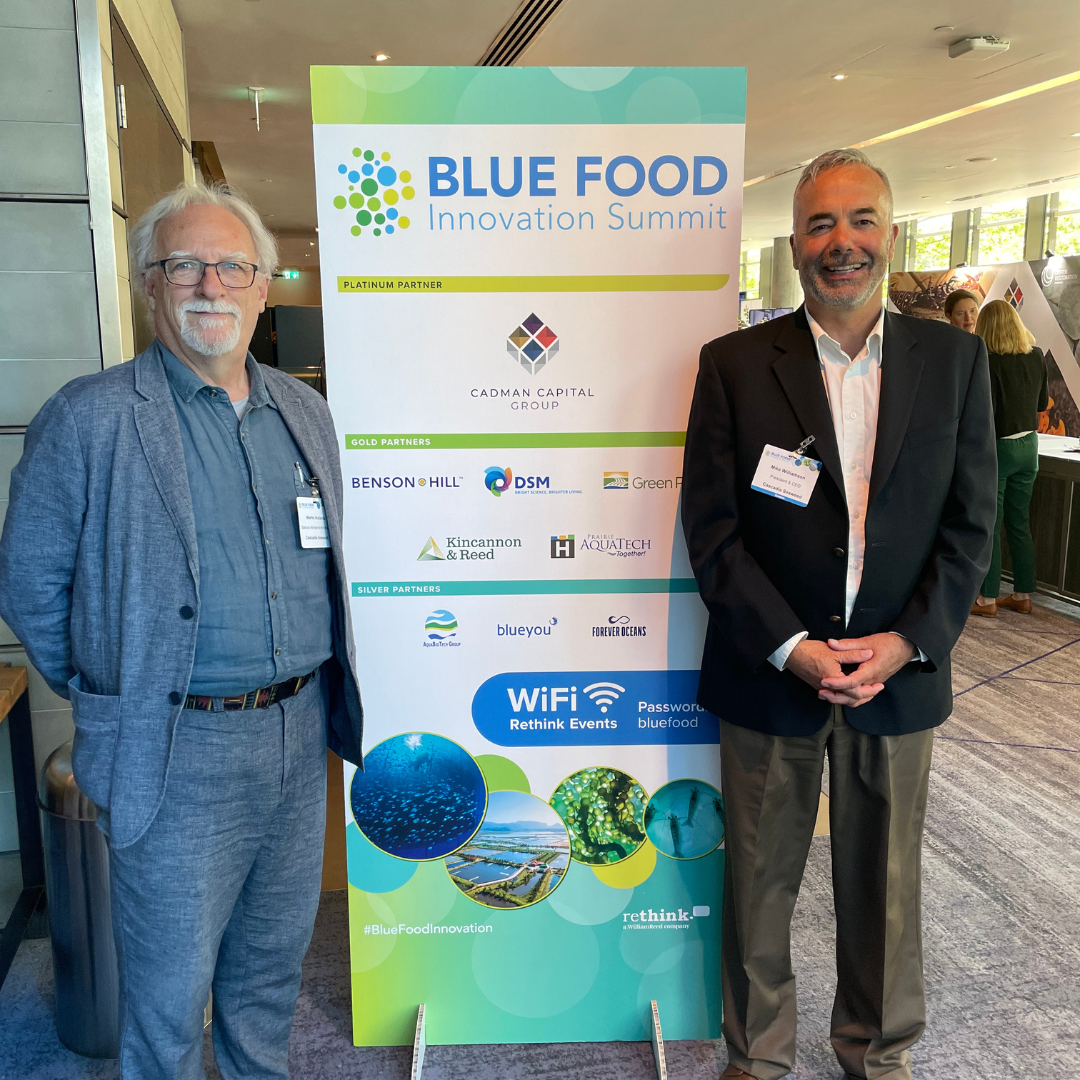
C - 9774 Third Street Sidney British Columbia V8L 3A4
Email: info@cascadiaseaweed.com
Phone: 1-778-351-4484

9774 - C Third Street Sidney British Columbia V8L 3A4
Email: info@cascadiaseaweed.com
Phone: 1-778-351-4484


